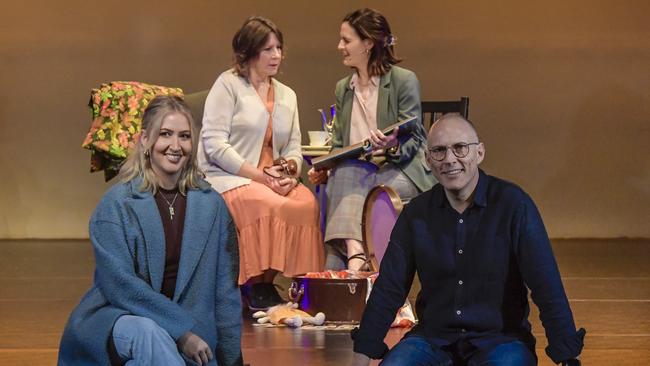In memory of so many forgotten at Oakden
A discovery of grim despair sparks an uplifting tribute.

When Adelaide’s infernal Oakden aged mental healthcare centre shut down in 2017 amid revelations of shocking neglect of dementia patients, a melancholy discovery was made as the facility was being decommissioned.
It was a dusty old store room strewn with boxes and suitcases, each holding the personal effects of the patients who lived and died there.
There were photos, jewellery, mementos and letters, all revealing the lives the patients themselves had forgotten, as they spent their finals days in a facility that had forgotten they had lives, too.
The man who found those boxes was senior Adelaide psychiatrist Duncan McKellar, after being enlisted by former SA chief psychiatrist Dr Aaron Groves to help conduct and write the independent review into Oakden. Prior to studying medicine and specialising in psychiatry as a mature-age student in his 30s, McKellar had studied as a musician at the University of Adelaide Conservatorium of Music and completed a Bachelor of Arts.
In his professional life, the report McKellar wrote helped trigger the aged care royal commission. But in his creative life, McKellar had become fixated on the image of that room filled with suitcases and boxes telling the stories of all those forgotten lives. The image was particularly poignant for McKellar as, aside from working with many dementia patients, he had also lost his own mum, Lizzie, to Alzheimer’s.
During the Covid lockdown, he discussed the idea with his musician daughter, Erin McKellar, who is completing a doctorate at the Sydney Conservatorium. Between them, the pair came up with the left-field idea to turn the story of dementia into a musical.
Appropriately, it is named A Box of Memories and, after an acclaimed debut at this year’s Adelaide Fringe, the musical had its Sydney premiere this week, with plans afoot for a regional tour in the eastern states.
“Working on Oakden was a remarkable and life-changing experience,” McKellar told The Weekend Australian.
“The thing that really impacted me were there were so many stories of people who had their loved ones at Oakden. Heart-breaking stories. It was towards the end of working on it that I was reflecting on some of the stories that had affected me.
“I was talking about all that and reflecting on the loss of Mum with my daughter, Erin, and she said it would be amazing to use a musical as a medium to get these real stories out to a broader audience, and use music and theatre as a way of connecting with an audience on an issue which is rarely discussed.
“People do not like talking about dementia. It’s the second-leading cause of death in Australia and the leading cause of death in Australian women; 1.6 million Australians are caring for someone with dementia and we have almost got half a million Australians with dementia.
“Yet we still feel uncomfortable with it, I think because it is so traumatising for people. We are also a bit terrified of it because the reality is it could be us.”
The musical centres on three characters. It follows the story of Lizzy – named in honour of McKellar’s mum – from her diagnosis with dementia to the end of her life aged in her 70s, and the impact it has on her daughter, Sonya, who is coming to terms with her mother’s illness as she watches her fade away. The third character is the doctor, Jeremy, who goes from seeing Lizzie as merely a patient to someone with a life, and rediscovers his own humanity while providing her care.
The musical made its Sydney debut at the Seymour Centre on Wednesday and was also performed on Thursday and Friday as part of HammondCare’s International Dementia Conference at the Hilton Hotel.
Erin McKellar told The Weekend Australian the response to the musical had been hugely emotional both for people working in aged care and for private people touched by the disease.
Tellingly, the statistical reach of the disease is emphasised by the fact all three cast members have or had grandparents who died or are battling with dementia.
“People really do find it so relatable and we are pleased that it works as a way for people to share the story of what it has meant for them and their families,” Erin McKellar said.
Duncan McKellar said he was still affected by his memory of finding that store room at Oakden but hoped the musical would be a political reminder that this kind of treatment cannot be allowed to happen again.
“After that patient had died, seeing her whole life story shoved into a cupboard and forgotten about was just terrible,” he said.
“There were photographs of her with her family, on her wedding day … her with her baby, there was a ring in there which I suspect was her engagement ring. It was incredibly dehumanising. This was how our system had lost the humanity of these people and their lives … their stories. This musical is a way of telling their stories. The worst thing is that pre-Oakden our whole community had allowed that to happen for so long. That’s what we wanted to address. We can’t forget people’s stories.”




To join the conversation, please log in. Don't have an account? Register
Join the conversation, you are commenting as Logout